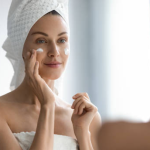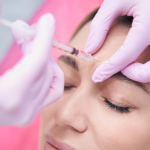When it comes to maintaining a glowing and healthy complexion, understanding the diverse array of skin care products is paramount. Each category serves a unique purpose in a comprehensive skin care routine, delivering specific benefits to your skin. From daily cleansing to targeted treatments, knowing what each type of product does will help you build an effective regimen. This article delves into the main categories of skin care products, ensuring you can make informed decisions for your skin’s health.
Cleansers: The Foundation of Skin Care Regimens

The first step in any skin care routine is cleansing. Cleansers remove dirt, oil, and makeup, preventing clogged pores and setting the stage for subsequent products. Different skin types require different cleansers; oily skins may benefit from foaming washes that remove excess sebum, while drier types might prefer hydrating cream or oil-based cleansers. Micellar water, a mild option, uses micelle technology to attract impurities without harsh scrubbing. For those wearing heavy makeup or sunscreen, a two-step process with an oil cleanser followed by a water-based cleanser ensures thorough cleaning.
Exfoliators: Unveiling Smoother Skin

Exfoliation is the process of removing dead skin cells from the surface of your skin. This can be achieved either physically—with scrubs and brushes—or chemically, using acids like glycolic or lactic acid. Physical exfoliators work by mechanical action, while chemical exfoliators dissolve the bonds holding dead cells to the skin’s surface. Regular exfoliation can improve texture, clarity, and the effectiveness of other skin care products. However, it’s important not to over-exfoliate, as this can lead to irritation and compromise the skin’s barrier function.
Toners: Preparing and Balancing the Skin
Toners often go overlooked, but they’re crucial for balancing the skin after cleansing. They remove any remaining impurities and prepare the skin to better absorb moisturizers and treatments. For oily and acne-prone skin, an astringent toner can help control excess oil, while a hydrating toner can soothe and replenish dry skin. Some toners also have pH-adjusting properties, which can improve the skin’s resilience. Here’s where we introduce a numbered list to highlight the primary functions of toners:
- Completing the cleansing process
- Rebalancing the skin’s pH
- Hydrating and soothing the skin
Moisturizers: Hydration and Protection
Moisturizers are the cornerstone of any skin care routine, serving to hydrate and protect the skin barrier. There are various types of moisturizers designed for different times of the day and skin needs. Daytime moisturizers often contain SPF to protect against the sun’s harmful rays and antioxidants to fend off environmental damage. Nighttime moisturizers typically focus on repair and intensive hydration, with ingredients like hyaluronic acid to lock in moisture and active compounds such as retinoids for anti-aging benefits.
Daytime Moisturizers
The right daytime moisturizer not only hydrates skin but also provides a shield against daily external aggressors. Including sun protection factor (SPF) in your morning moisturizer is a convenient way to ensure you don’t skip this vital step. Antioxidants like vitamin C and E are commonly found in daytime formulas to help neutralize free radicals throughout the day. This dual action of hydration and protection can help prevent premature aging and maintain a healthy skin barrier.
Nighttime Moisturizers
When you sleep, your skin goes into repair mode, making a specially formulated nighttime moisturizer a strategic step. These richer creams and lotions often contain higher concentrations of active ingredients, such as peptides and retinoids, which support cell turnover and collagen production. The focus is on recovery and rejuvenation, so nighttime moisturizers can also be more emollient, helping to lock in moisture lost during the day.
Serums and Treatments: Targeting Specific Concerns
Serums are potent formulations designed to penetrate deeply into the skin and address specific concerns, such as aging, dryness, acne, or hyperpigmentation. Because of their high concentration of active ingredients and their lighter textures, serums are applied before thicker creams and oils. Here’s a table that outlines common serum ingredients and their benefits:
| Ingredient | Benefit |
|---|---|
| Vitamin C | Antioxidant, skin brightening |
| Hyaluronic Acid | Hydration, plumping |
| Retinol | Anti-aging, acne control |
| Niacinamide | Skin repairing, anti-inflammatory |
Sun Protection: An Essential for Healthy Skin
No skin care routine is complete without sun protection. UVA and UVB rays can cause premature aging, hyperpigmentation, and increase the risk of skin cancer. There are sunscreen options suitable for every skin type, from mineral to chemical formulations. Mineral sunscreens work by physically blocking UV rays, while chemical sunscreens absorb them. Sun protection should be a part of everyday routine, regardless of the weather or season.
Eye Creams: Special Care for Delicate Areas
The skin around the eyes is thinner and more delicate, making it prone to signs of aging and fatigue like crow’s feet, puffiness, and dark circles. Eye creams are formulated to address these concerns with targeted ingredients such as caffeine for puffiness, vitamin K for dark circles, and retinol for fine lines. Since this area is so sensitive, it’s essential to apply products specifically designed for the eyes to avoid irritation.
Masks: Intensive Treatment for Various Needs
Masks offer a boost to the skin by providing high concentrations of active ingredients over a short period. They are categorized by their function—for example, clay masks are excellent for purifying oily skin, hydrating masks replenish dry skin, and sheet masks can deliver a range of benefits based on the soaked-in serum. Here is a numbered list of popular types of masks:
- Clay Masks
- Hydrating Masks
- Peel-Off Masks
- Sheet Masks
- Overnight Masks
Conclusion
Understanding the main categories of skin care products is the first step to crafting a regimen that is tailored to your individual skin needs. It’s important to recognize that while some products are foundational, others might be more situational based on your skin’s current condition and the season. Experimentation under the guidance of a dermatologist can further refine your routine, ultimately leading to healthier, more vibrant skin.
FAQs
1. What is the most important category of skin care products?
Sun protection is considered essential across the board to prevent damage and premature aging from UV rays.
2. Can I use products from different categories at the same time?
Yes, layering products from different categories is common in skin care routines, just be sure to go from thinnest to thickest texture for proper absorption.
3. How often should I change my skin care products?
Your skin care needs might change with the seasons, age, or skin condition, so adjust your products accordingly and seek advice from a skin care professional as needed.
4. Is it necessary to use products from all categories?
Not necessarily, customize your skin care routine based on your skin type and concerns rather than using every product type available.
5. Are natural or organic skin care products better than synthetic ones?
The effectiveness of skin care isn’t solely based on whether ingredients are natural or synthetic, but rather how well-formulated and suited they are to your skin concerns.


